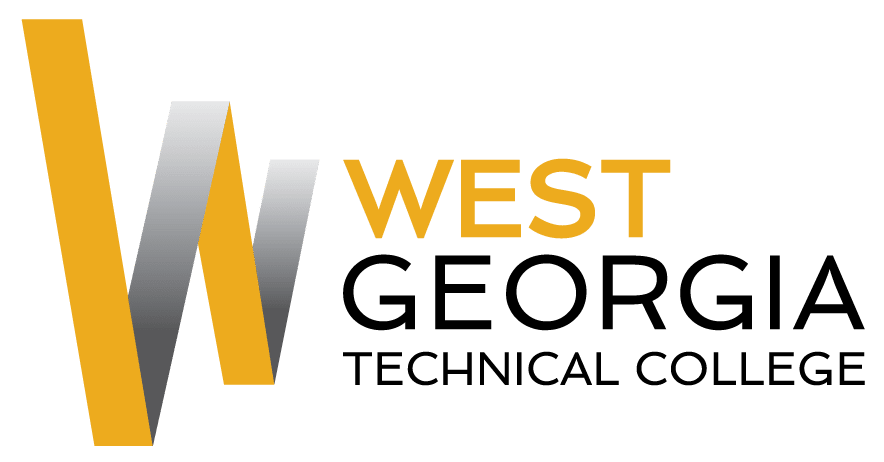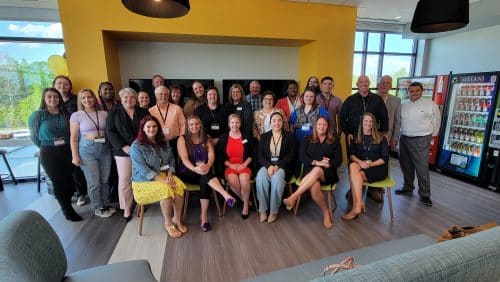
Workplace Effectiveness
Workplace Effectiveness
Ten Soft Skills for Success
The meaning of Soft Skills can sometimes be difficult to describe. It can be that unique attribute or characteristic that facilitates great communication. It can be the special way that you show confidence in a challenging situation. These and other events can become more easily managed with this great workshop.
With our 10 Soft Skills You Need workshop your participants will begin to see how important it is to develop a core set of soft skills. By managing and looking at the way people interact and seeing things in a new light, your participants will improve on almost every aspect of their career.
- Discuss how soft skills are important to success in the workplace
- Understand the 10 key soft skills everyone should have
- Use soft skills to relate more effectively to others in the workplace
- Understand how to use soft skills to communicate, problem-solve, and resolve conflict
- Apply soft skills to specific situations
Business Ethics
A company’s ethics will determine its reputation. Good business ethics are essential for the long-term success of an organization. Implementing an ethical program will foster a successful company culture and increase profitability. Developing a Business Ethics program takes time and effort, but doing so will do more than improve business, it will change lives.
A company’s ethics will have an influence on all levels of business. It will influence all who interact with the company including customers, employees, suppliers, competitors, etc. All of these groups will have an effect on the way a company’s ethics are developed. It is a two-way street; the influence goes both ways, which makes understanding ethics a very important part of doing business today. Ethics is very important, as news can now spread faster and farther than ever before.
- Define and understand ethics.
- Understand the benefits of ethics.
- Create strategies to implement ethics at work.
- Recognize social and business responsibility.
- Identify ethical and unethical behavior.
- Learn how to make ethical decisions and lead with integrity.
Business Etiquette
This course examines the basics, most importantly to be considerate of others, dress/appearance, the workplace versus social situations, business meetings, proper introductions and ‘the handshake’, conversation skills/small talk, cultural differences affecting international business opportunities, dealing with interruptions, and proper business email and telephone etiquette. Have you ever been in a situation where:
You met someone important and had no idea what to say or do?
You spilled soup all over yourself at an important business event?
You showed up at an important meeting under or overdressed?
Let’s face it: we’ve all had those embarrassing etiquette gaffes. Our Business Etiquette workshop will help your participants look and sound their best no matter what the situation.
- Define etiquette and provide an example of how etiquette can be of value to a company or organization.
- Understand the guidelines on how to make effective introductions.
- Identify the 3 C’s of a good impression.
- Understand how to use a business card effectively.
- Identify and practice at least one way to remember names.
- Identify the 3 steps in giving a handshake.
- Enumerate the four levels of conversation and provide an example for each.
- Understand place settings, napkin etiquette and basic table manners.
- Understand the meaning of colors in dressing for success.
- Differentiate among the dressy casual, semi-formal, formal and black tie dress code.
Change Management
Change is a constant in many of our lives. All around us, technologies, processes, people, ideas, and methods often change, affecting the way we perform daily tasks and live our lives. Having a smooth transition when change occurs is important in any situation and your participants will gain some valuable skills through this workshop.
The Change Management workshop will give any leader tools to implement changes more smoothly and to have those changes better accepted. This workshop will also give all participants an understanding of how change is implemented and some tools for managing their reactions to change.
- List the steps necessary for preparing a change strategy and building support for the change
- Describe the WIFM – the individual motivators for change
- Use needed components to develop a change management and communications plans, and to list implementation strategies
- Employ strategies for gathering data, addressing concerns and issues, evaluating options and adapting a change direction
- Utilize methods for leading change project status meetings, celebrating a successful change implementation, and sharing the results and benefits
- Describe the four states of Appreciative Inquiry, its purposes, and sample uses in case studies
- Use strategies for aligning people with a change, appealing to emotions and facts
- Describe the importance of resiliency and flexibility in the context of change
Creative Problem Solving
In the past few decades, psychologists and business people alike have discovered that successful problem solvers tend to use the same type of process to identify and implement the solutions to their problems. This process works for any kind of problem, large or small.
The Creative Problem Solving workshop will give participants an overview of the entire creative problem solving process, as well as key problem solving tools that they can use every day. Skills such as brainstorming, information gathering, analyzing data, and identifying resources will be covered throughout the workshop.
- Understand problems and the creative problem solving process
- Identify types of information to gather and key questions to ask in problem solving
- Identify the importance of defining a problem correctly
- Identify and use four different problem definition tools
- Write concrete problem statements
- Use basic brainstorming tools to generate ideas for solutions
- Evaluate potential solutions against criteria, including cost/benefit analysis and group voting
- Perform a final analysis to select a solution
- Understand the roles that fact and intuition play in selecting a solution
- Understand the need to refine the shortlist and redefine it
- Understand how to identify the tasks and resources necessary to implement solutions
- Evaluate and adapt solutions to reality
Organization Skills
Developing good Organizational Skill is an investment that will provide benefits for years. To be successful means to be organized. These skills will filter through all aspects of your participants professional and personal lives. Throughout this workshop your participants will be given the tools necessary in developing better Organizational Skills.
Through Organizational Skills your participants will encounter improved productivity, better management, and an overall increase in professional growth. Every day people waste numerous amounts of time looking for items. So stop looking for those important items, and start knowing where they are by getting organized.
- Examine current habits and routines that are not organized
- Learn to prioritize your time schedule and daily tasks
- Determine ways of storing information and supplies
- Learn to organize personal and work space
- Learn to resist procrastination
- Make plans to stay organized in the future
Time Management
Personal time management skills are essential for professional success in any workplace. Those able to successfully implement time management strategies are able to control their workload rather than spend each day in a frenzy of activity reacting to crisis after crisis – stress declines and personal productivity soars! These highly effective individuals are able to focus on the tasks with the greatest impact to them and their organization.
The Time Management workshop will cover strategies to help participants learn these crucial strategies. Your participants will be given a skill set that include personal motivation, delegation skills, organization tools, and crisis management. We’ll cover all this and more during this workshop.
- Plan and prioritize each day’s activities in a more efficient, productive manner
- Overcome procrastination quickly and easily
- Handle crises effectively and quickly
- Organize your workspace and workflow to make better use of time
- Delegate more efficiently
- Use rituals to make your life run smoother
- Plan meetings more appropriately and effectively
Performance Management
Performance Management is making sure the employee and the organization are focused on the same priorities. It touches on the organization itself by improving production and reducing waste. It helps the employee or individual set and meet their goals and improves the employee manager relationship. The key in keeping an organization and employee aligned, which improves performance and productivity, is Performance Management.
When changes occur Performance Management helps the transition to be smoother and less hectic. It helps the organization and employee have a stream-lined relationship which improves communication and interactions between the two groups. It will help close any gaps that exist in an employee’s skill-set and make them a more valuable employee through feedback and coaching.
- Define performance management.
- Understand how performance management works and the tools to make it work.
- Learn the three phases of project management and how to assess it.
- Discuss effective goal-setting.
- Learn how to give feedback on performance management.
- Identify Kolb’s Learning Cycle.
- Recognize the importance of motivation.
- Develop a performance journal and performance plan.
Safety in the Workplace
Workplace safety is the responsibility of everyone in an organization. Companies have legal obligations to meet certain safety requirements, but many go further than the minimum obligations. Safety standards and procedures must be put in place, and everyone needs to follow the standards in order for them to be effective.
Our Safety in the Workplace course will be instrumental in reviewing common hazards, safety techniques and after completion, your participants will have the tools to help them create a Safety policy for your work place. By identifying and anticipating hazards, employers can prevent injuries and keep employees safe.
- Define workplace safety.
- Understand legal responsibilities associated with a safe work environment.
- Create a safety plan and identify hazards.
- Recognize the role of management.
- Develop training procedures.
- Learn how to implement a safety plan.
Personal Productivity
Most people find that they wish they had more time in a day. This workshop will show participants how to organize their lives and find those hidden moments. Participants will learn how to establish routines, set goals, create an efficient environment, and use time-honored planning and organizational tools to maximize their personal productivity.
Personal Productivity is a goal most of us have. Through this workshop your participants will be on the right track in achieving that goal. Some people blame everything that goes wrong in their life on something or someone else, but through this workshop your participants will take ownership and begin to lead a more productive life.
- Set and evaluate SMART goals
- Use routines to maximize their productivity
- Use scheduling tools to make the most of their time
- Stay on top of their to-do list
- Start new tasks and projects on the right foot
- Use basic project management techniques
- Organize their physical and virtual workspaces for maximum efficiency
- Take back time from e-mail and handheld devices
- Beat procrastination
Attention Management
A distracted employee is a less effective employee. Employees who do not pay attention to their work can waste valuable time and make careless mistakes. Your participants will be more efficient at their job, make fewer mistakes, and overall be more productive.
Attention Management is a useful skill that allows managers to connect with their employees on an emotional level and motivate them to focus on their work and how to reach their personal and company goals. Your participants will gain valuable insight and strategies into what it takes to be more attentive and vigilant.
- Define and understand attention management.
- Identify different types of attention.
- Create strategies for goals and SMART goals.
- Be familiar with methods that focus attention.
- Put an end to procrastination.
- Learn how to prioritize time.
- Increased productivity
- Increased job satisfaction
Train the Trainer
Whether you are preparing to be a professional trainer, or you are someone who does a bit of training as a part of their job, you’ll want to be prepared for the training that you do. Your participants will begin the process of becoming trainers themselves, and understand that training is a process where skills, knowledge, and attitudes are applied.
The Train-The-Trainer workshop will give all types of trainer’s tools to help them create and deliver engaging, compelling workshops that will encourage trainees to come back for more. Skills such as facilitating, needs analyses, understanding participant’s needs, and managing tough topics will give your trainees what the need to become a trainer themselves.
Workshop Objectives:
Define training, facilitating, and presenting
- Understand how to identify participants’ training needs
- Create a lesson plan that incorporates the range of learning preferences
- Create an active, engaging learning environment
- Develop visual aids and supporting materials
- Manage difficult participants and tough topics






